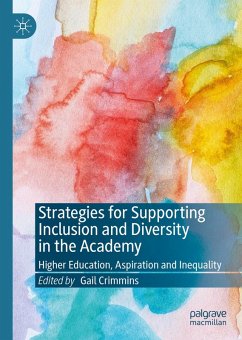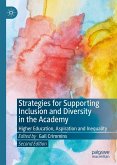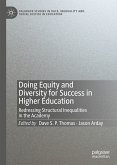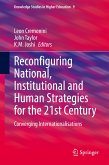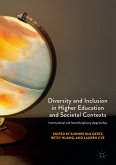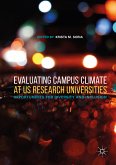"This book brings together a comprehensive and diverse range of perspectives and experiences of strategies and approaches that will be of value to anyone who works in delivery, leadership or support of diversity and inclusion in higher education. Its authentic voice, combined with a rich range of methodologies and personal insights helps the authors to bring complex concepts to life in a manner which is honest, thoughtful and challenging." "Crimmins' excellent collection is a treasure trove of irrefutable statistical facts and figures that blows away the myth that diversity and inclusion policies have closed the equalities gap in higher education. Powerful fuel for policy makers and social justice educators passionate about creating a truly global academy where all can flourish regardless of race, gender, class, sexuality, and (dis)ability."
-Professor Sarah Sharples, Pro-Vice Chancellor for Equality, Diversity and Inclusion, University of Nottingham, UK
-Professor Heidi Safia Mirza, Goldsmiths College, University of London, UK
This book explores tried and tested strategies that support student and faculty engagement and inclusion in the academy. These strategies are anchored by a brief exploration of the history and effect/s of exclusion and deprivilege in higher education. However, while many publications exploring academic inequality focus on the causes and impacts of structural, psychological and cultural exclusion based on racism, sexism, classism and ableism, they rarely engage in interventions to expose and combat such de/privilege. Capturing examples of inclusive practices that are as diverse as student and faculty populations, these strategies can be easily translated and employed by organisations, collectives and individuals to recognise and combat social and academic exclusion within higher education environments.
Gail Crimmins is Senior Lecturerat the University of the Sunshine Coast, Australia. Her research interests include gender inequity and the student experience in the academy and uses of feminist approaches to research.
Dieser Download kann aus rechtlichen Gründen nur mit Rechnungsadresse in A, B, BG, CY, CZ, D, DK, EW, E, FIN, F, GR, HR, H, IRL, I, LT, L, LR, M, NL, PL, P, R, S, SLO, SK ausgeliefert werden.

